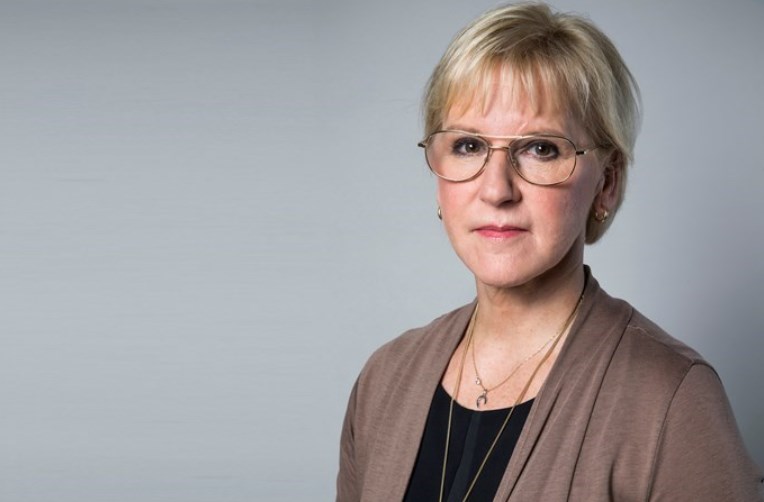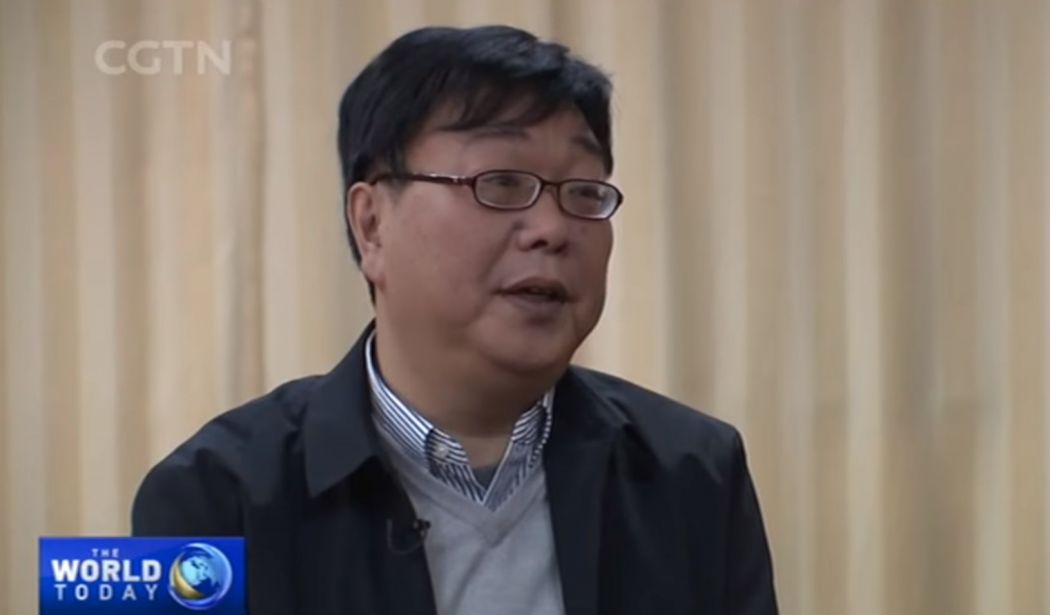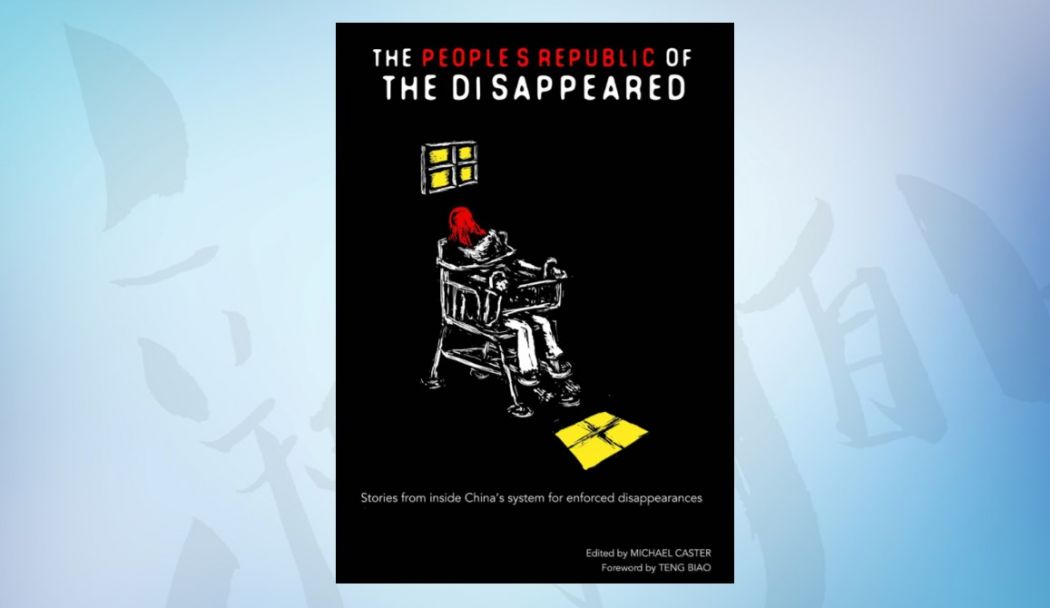By Peter Dahlin and Susanne Berger
Swedish Foreign Minister Margot Wallström said in a recent interview with Swedish Radio that Sweden, as a small country, lacks the tools to confront China, except through silent diplomacy.
Meanwhile, she referred to the case of imprisoned publisher Gui Minhai as a “consular matter”. Her remarks were clearly aimed at the broader Swedish public, in response to the growing pressure on Sweden’s government to take action on Gui’s behalf.

Wallström made her statement with the understanding that her remarks would be seen as a capitulation by the leaders in Beijing. With her words, the Swedish government has once again taken a step to neutralize its own power.
In addition, her statement will not be looked upon kindly in European capitals, where Sweden’s weak attitude will instead be taken as proof that other EU countries cannot rely on Swedish support in possible future confrontations with China.
This, in turn, will affect potential support for Sweden, just when Europe has started to signal that it would stand behind Swedish efforts to pursue a harder line against China to secure Gui Minhai’s release.
Gaining such broader European backing is a realistic possibility, as was made clear last month when Germany’s Ambassador to China personally confirmed the EU’s support of Sweden in the case.
Gui Minhai, the author and publisher of a series of books seen as undermining China’s Communist Party, was kidnapped in Thailand in 2015. Since then, his fate and his legal situation have remained murky. The Swedish government decided to follow Chinese requests not to share any information about his case with the public.

Gui’s situation – and the ever more extreme measures China is willing to take – have shocked a world that has slowly begun to resist China’s repressive policies. According to the most recent information, Gui’s state of health is now critical.
The human rights organization China Action documented in a 2011 report 25 cases of suspected murders in Chinese prisons – and that covered only one province.
Since Xi Jinping became president in 2013, the situation has declined sharply. Prisoners are exposed to different forms of torture and are intentionally denied medical care, which has resulted in many deaths, including that of Nobel Laureate Liu Xiaobo last summer. Gui’s life may now be in immediate danger.
Many accept the idea at face value that “little” Sweden can do nothing to counter a giant like China. But this is not correct. Instead, the Swedish government basically appears to lack the will to act.
When Gui was first kidnapped, it is highly likely that he was placed under “residential surveillance at a designated location” (RSDL). This form of detention is a new tool created under Xi Jinping, which allows police to disappear a person into a secret prison for up to six months, without any regular legal process.
The victims are held in specially constructed facilities, outside of the normal justice system. No information is provided about where the “suspect” is being detained. In most cases, even the prosecutor’s office is not allowed to visit.

Before the publication of the book The People’s Republic of the Disappeared (Michael Caster, ed., Safeguard Defenders, 2017), few knew how RSDL is used to legalize and institutionalize state kidnappings.
Gui is one of the first European citizens placed in RSDL. One of the authors of this article, Peter Dahlin, was another in early 2016. At the time Dahlin was released and deported, Gui was almost certainly still held in RSDL. More than two years have passed since then.
Neither the Swedish Ministry of Foreign Affairs nor its Embassy in Beijing have asked Dahlin for any information. Or rather, nobody has asked him for a debriefing, even after he decided to contact them. By now they seem to have discarded the idea altogether.
The lack of follow-up is quite incredible, given the fact that Dahlin’s contacts and former colleagues have more experience than any other of providing legal assistance to persons held in RSDL. It also creates serious doubts about how interested the Löfven government really is in assisting Gui Minhai.
Sweden’s unwillingness to engage is nothing new and is fully exploited by China. Gui’s situation today can be directly traced back to Sweden’s slow reaction to his kidnapping and arrest in 2015.
The fact that history appears to be repeating itself further highlights the Swedish government’s hesitancy to defend not only its own citizens, but also the values Sweden claims to stand for – democracy, freedom of expression and the rule of law.
A striking example of this came when in 2015, Sweden sharpened its law on “universal jurisdiction”, a legal tool that allows countries to prosecute serious violations of human rights, no matter where in the world they occur.
The lawyers for Swedish-Eritrean playwright Dawit Isaak, who has been imprisoned in Eritrea since 2001 without charge or trial, tried to prosecute Eritrean officials responsible for Isaak’s plight in Sweden.

This was opposed, however, by the Swedish Foreign Ministry which would rather protect its relations with Eritrea. Eritrea is not only one of the poorest nations but also one of the world’s worst dictatorships.
When Foreign Minister Wallström says that Sweden lacks effective tools to counter China, she really means that Sweden lacks political will. And also perhaps a creative mindset regarding the use of diplomatic force.
After Sergei Magnitsky, a young Russian tax attorney, was tortured to death in a Russian prison in 2009, his boss, the international investor Bill Browder, launched an intensive campaign to give democracies a new and effective weapon in its foreign policy arsenal- the so-called Global Magnitsky Act.
The U.S., Canada and the U.K. are some of the countries that have adopted this law, a powerful mechanism to sanction specific individuals who have committed serious human rights violations.
The Kremlin’s wrath in response is clear evidence of how troubling Russia’s President Vladimir Putin considers the new legislation. The reaction will undoubtedly be the same from Beijing to Hanoi, from Riyadh to Asmara once these kinds of sanctions are aimed at them.
In China, as in Russia, the persons who either commit or oversee human rights offenses, are richly rewarded. Their monies and assets are almost always placed abroad, where, as a result of the Magnitsky Act, they are now no longer safe.
It is clearly difficult but not impossible to find the persons responsible for Gui’s illegal imprisonment. This concerns persons in China’s security apparatus as well as those in the state-owned media who are cooperating with Chinese police authorities.
Last year, Sweden’s Baltic neighbors prepared or passed their own versions of the Magnitsky Act, even in the face of fierce opposition from Moscow. In Sweden, however, many politicians and members of the business community remain skeptical. Some are outright opposed to the adoption of a Swedish Magnitsky law or other serious sanctions because they consider them a threat to Sweden’s far-flung economic and business interests.
In contrast, the U.S. Department of State recently took decisive steps to classify the Russian state media as a “foreign agent”, ignoring the Kremlin’s anger which immediately followed. The E.U. decided to sanction individuals tied to Iran’s state-run media after forced confessions of regime critics were broadcast on Iranian state TV.
In China, the same kind of forced public confessions are now becoming routine – before trial and in many cases now before an official arrest has even occurred. In this, China’s state media is working hand-in-hand with the Communist Party and the Chinese Police.

Even worse is the fact that these forced confessions shown on TV now have also become an integral part of China’s foreign policy, which is illustrated by Gui Minhai’s three (!) appearances on Chinese TV. However, remarkably, in Sweden, nobody has demanded action against Chinese media, which function freely in Sweden and throughout the EU.
When a resigned Margot Wallström says that Sweden cannot do anything about China she is clearly mistaken. The tools exist, but the spirit is lacking. Late last year, China announced its intentions to build Scandinavia’s largest harbor in Lysekil (located in Western Sweden), a plan that has been heavily criticized by Sweden’s military and security experts.
They voiced concerns that China’s aggressive and politically motivated “Belt and Road” initiative increasingly aims to secure access to strategic resources and infrastructure. It is part and parcel of Xi Jinping’s ever more confrontational foreign policy.
Such a strategy, which serves to undermine the sovereignty of other countries, should be effectively met by Swedish policymakers. One possibility already under discussion is the creation of a centralized European mechanism to review and monitor Chinese investments. This should further strengthen the EU position vis-à-vis China, and could also have a conciliatory effect on China’s human rights policy.
All these tools exist, if one is willing to use them– and EU cooperation can further increase their effectiveness. It is high time for the Swedish Parliament to consider passing a Magnitsky law – and high time to investigate the work of Chinese state media in Sweden.
Similarly, it is time for Sweden’s EU representatives to push for the adoption of a Europe-wide Magnitsky Act.
Peter Dahlin is one of the founders and former head of the human rights organization China Action (2009 – 2016). Susanne Berger is a historical researcher and founder of the Raoul Wallenberg Research Initiative (RWI-70).
This article first appeared in Svenska Dagbladet on March 27, 2018: https://www.svd.se/varfor-gor-inte-wallstrom-mer-for-gui-minhai
